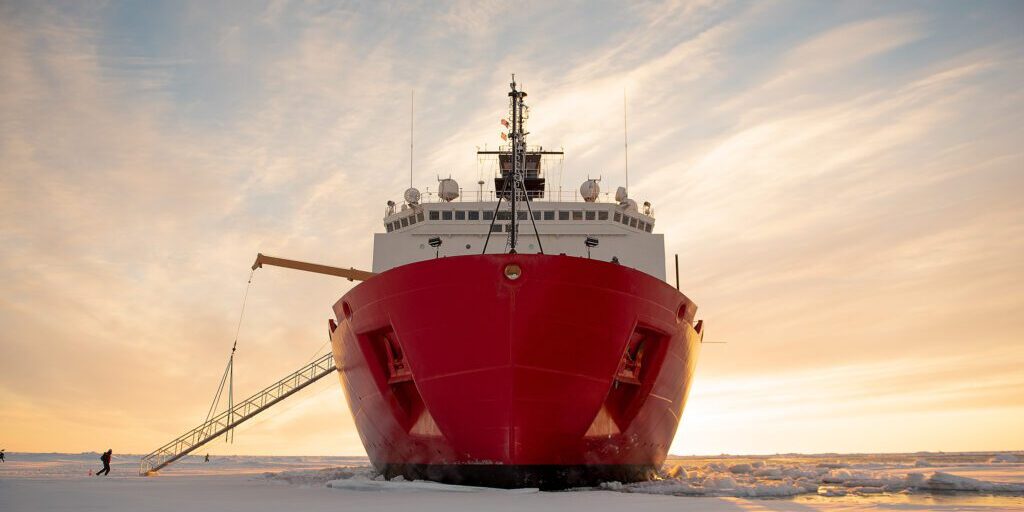Two different US Coast Guard ice breakers will venture past Western Alaska this year, in what locals and researchers are calling a strategic message to assert American sovereignty to the nation’s adversaries.
First, the vessel Polar Star spent 12 weeks above the Arctic Circle, breaking a 40-year wintertime absence. Then, the Coast Guard announced the other ice breaker, Healy, will travel the Northwest Passage this summer.
The trip is planned together with Canada, in a move that shows unity between the two Arctic neighbors. It reaffirms a treaty signed in 1988, agreeing that the United States will obtain Canadian consent before taking icebreakers through the passage. The United States came close to overstepping the treaty in 2019, after Russia attempted to restrict traffic in the Northern Sea Route.
“I think it sends a clear message or agreement to disagree… The official status of the Northwest Passage is somewhat less important than being able to collaborate and operate with expectations and confidence with our partners,” Arctic security researcher Troy Buffard told listeners.
The international rhetoric is followed closely by locals, too. Austin Ahmasuk, who is a marine advocate for the tribal nonprofit Kawerak, says locals have a complicated dependence on military decisions.
“I think what’s perhaps playing out, is a little bit of rhetoric between countries that are kind of escalating hot political topics, such as, security interests, national defense, that kind of thing. I don’t think that we in the Arctic want to be in the middle of an arms race or political stage playing that puts us in jeopardy. Of course, we have to work internationally, as much as possible to ensure that peace occurs in the Arctic,” Ahmasuk shared.
He also pointed out that while the military offers jobs and economic growth to many in the region, they have also done things that are detrimental to communities, such as toxic waste left behind. In fact, he pointed out, historical documents show the ship’s namesake – Captain Michael Healy – was involved in an 1882 bombardment of an Alaska Native village.
Ahmasuk says he is hopeful that as more ice melts, trips like the Healy’s upcoming Northwest Passage journey could be a chance to improve communication between federal agencies and Indigenous people. “I hope that the Coast Guard can learn from our communities and compare how our communities contrast: how our communities might be involved in this new era — this relatively new era that we’re trying to figure out now,” Ahmasuk said.
Image at top: The Healy, which is homeported in Seattle, is one of two ice breakers in U.S. service. It is the only military ship dedicated to conducting research in the Arctic. Photo by NyxoLyno Cangemi/U.S. Coast Guard.







